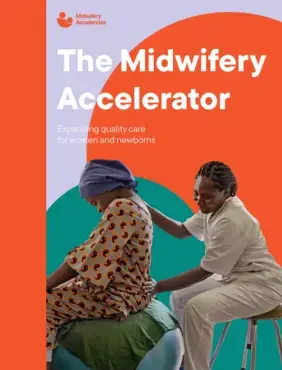Investing in midwives is a cost-effective and sustainable strategy to improve maternal and newborn health and well-being and reduce mortality. There is ample evidence to show that care provided by midwives is women centric, significantly advances maternal and newborn health outcomes, strengthens health systems, and helps build future healthier generations. Investments in quality midwifery care can help accelerate progress towards the achievement of sustainable development goals for health (SDG3) and gender equality (SDG5). Educated and regulated midwives can deliver 90% of essential sexual, reproductive, maternal, newborn, and adolescent health services. Achieving universal coverage of care provided by midwives can help avert almost two thirds of maternal and newborn deaths and stillbirths. This translates to over 4.3 million lives saved per year by 2035.
As countries strive to make the most of limited resources, midwifery models of care offer a proven, cost-effective and sustainable solution to achieve the best possible health outcomes. Investing in midwife-provided care yields substantial economic and social benefits, with a return of $16 for every $1 invested. Despite their huge impact, midwives form only 10% of the global sexual, reproductive, maternal, newborn, and adolescent health workforce and the potential of midwifery models of care remains persistently unrecognised and underutilized. As a result, the world continues to face a deficit of 900,000 midwives. Chronic and systemic underfunding, increased medicalisation and routine use of unnecessary interventions, further hindered by gender barriers in the health system and societies at large are major barriers to improving midwifery care.


